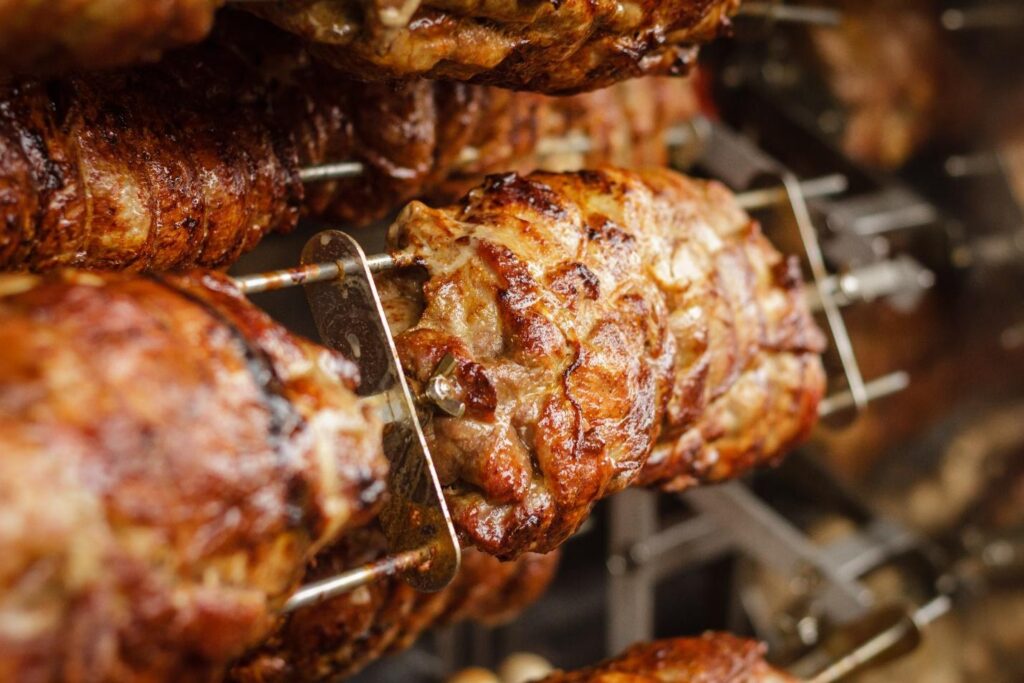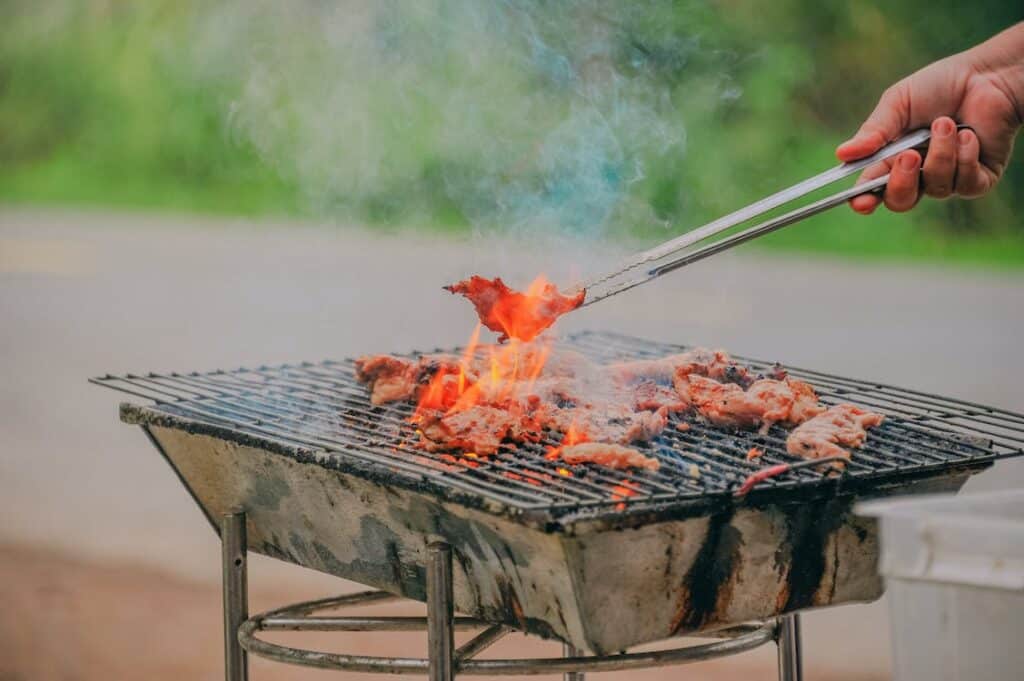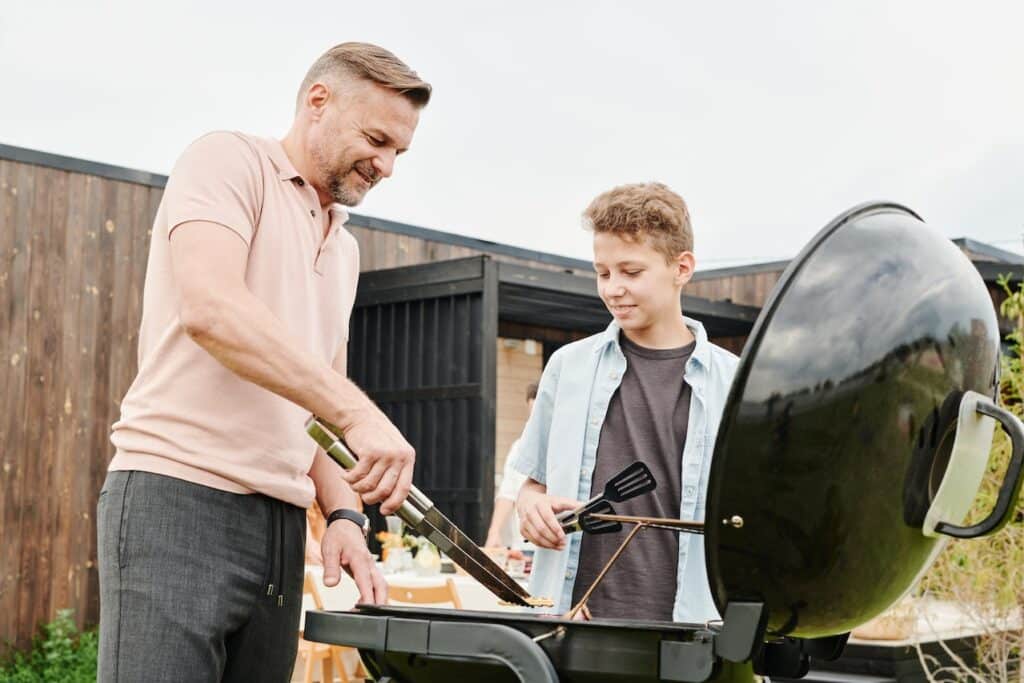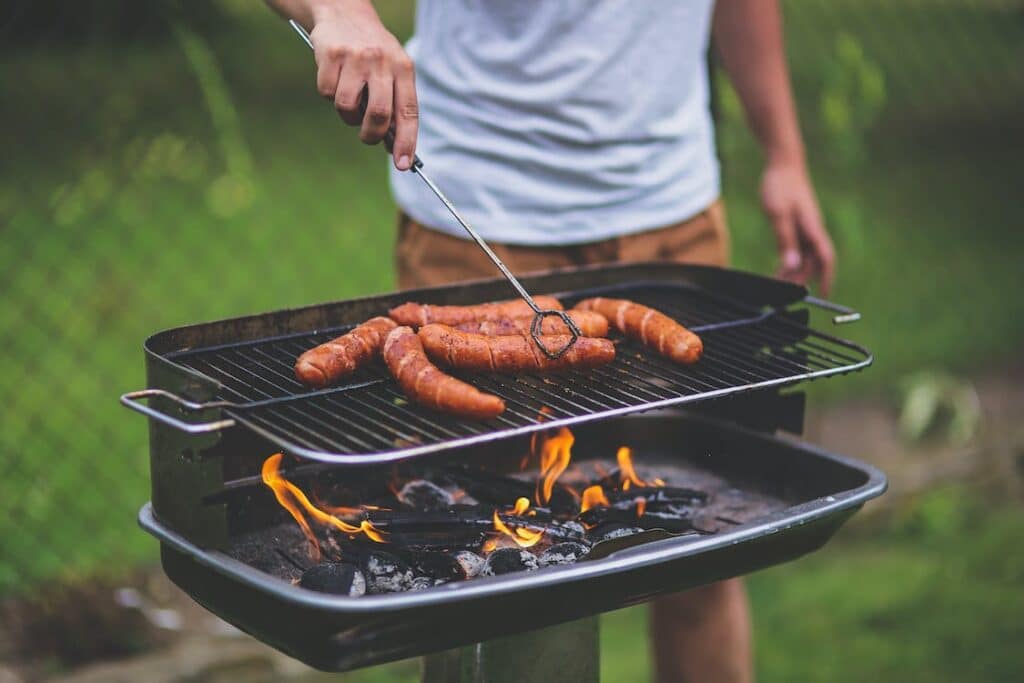The Ultimate Guide: Settling the Debate on Turkey Doneness for Grilling Enthusiasts
Hey there, grill masters! As we approach Thanksgiving and the holiday season, many of us will be firing up the grill to cook that perfect turkey. But the question remains: is turkey done at 165 or 180 degrees Fahrenheit? The debate has been raging for years, and it’s time to settle it once and for all.

In this article, we’ll dive into the world of turkey cooking temperatures. We’ll explore the differences between the 165 and 180 schools of thought, and the importance of a meat thermometer in determining doneness. We’ll also discuss the various factors that can affect turkey cooking time, as well as safety precautions and tips for ensuring a delicious and safe turkey.
Whether you’re a seasoned pro or new to the grilling game, this article has something for everyone. So keep reading to learn more about how to cook the perfect turkey this holiday season.
Understanding the Cooking Temperatures of Turkey
One of the most important aspects of grilling a turkey is understanding the recommended cooking temperatures to ensure that it’s not only safe to eat but also deliciously moist and flavorful. While there may be some debate about whether a turkey should be cooked to 165 or 180 degrees Fahrenheit, it all depends on your personal preference.
The USDA recommends cooking turkey to an internal temperature of at least 165 degrees Fahrenheit in order to kill any harmful bacteria that may be present. However, some chefs prefer their meat slightly more done and opt for a higher temperature of around 180 degrees Fahrenheit.
It’s important to note that measuring the internal temperature is crucial in determining whether your poultry has been fully cooked. A meat thermometer inserted into the thickest part of the bird without touching bone can give you an accurate reading.
But don’t stop there! To achieve optimal flavor and juiciness, allow for resting time after removing from heat source before carving or serving. This will redistribute juices throughoutthe meat yielding are more tender result.
Ultimately, choosing between these two temperatures comes down to personal preference – do you want a slightly pinker center or fully cooked throughout? Whatever you decide just remember food safety always come first!
As with all culinary endeavors- practice makes perfect! So go ahead grill up those turkeys until they’re perfectly done and have everyone marvel at how amazing your skills are next door while they salivate over their own dry undercooked birds!
The debate between 165° and 180° Fahrenheit
The debate between cooking turkey to 165 or 180 degrees Fahrenheit is one that has been raging among grilling enthusiasts for years. While both temperatures are considered safe by the USDA, there are some key differences in the end result.
Cooking a turkey to 165 degrees Fahrenheit will ensure that all harmful bacteria have been destroyed and the meat is safe to eat. However, at this temperature, the meat may still be slightly pink and have a softer texture than those cooked to higher temperatures.
On the other hand, cooking a turkey to 180 degrees Fahrenheit will result in well-done meat with no trace of pinkness. The texture of meat cooked at this temperature tends to be firmer and drier than those cooked at lower temperatures.
So which temperature should you choose? It ultimately comes down to personal preference and how you plan on serving your turkey. If you prefer juicier meat with a slightly softer texture then aim for around 165°F; if you prefer well-done moisture-free cuts then go up until it reaches around ~180°F
As an expert griller myself who has spent countless hours perfecting his craft I recommend experimenting with both temperatures before deciding which one works best for your taste buds!
The importance of a meat thermometer in determining doneness
As a seasoned grilling enthusiast, there are few things more frustrating than overcooking or undercooking your meat. When it comes to turkey, the debate rages on: is it done at 165 degrees Fahrenheit or 180 degrees Fahrenheit? The answer is simple – use a meat thermometer.
A meat thermometer is an essential tool for any grill master looking to achieve perfect doneness every time. While cooking times and temperatures can vary based on factors such as the size of the bird and cooking method, using a meat thermometer takes guesswork out of the equation.
Not only does using a meat thermometer ensure food safety by ensuring that harmful bacteria has been destroyed, but it also results in juicy and tender meats that are cooked precisely to your liking. No more dry turkey breasts or pink centers – with a reliable digital thermometer in hand, you can confidently cook your bird until it reaches its desired internal temperature.
So whether you’re new to grilling or have years of experience under your belt, investing in a high-quality digital meat thermometer will not only make you feel like an expert grill master but will also guarantee delicious results every time. Don’t leave doneness up to chance – trust in science and invest in precision with this simple yet essential tool for all barbecuing occasions.
Factors Affecting Turkey Cooking Time
When it comes to cooking the perfect turkey on the grill, there are several factors that can affect cooking time. Understanding these factors is crucial for achieving a perfectly cooked bird every time.

« how to defrost steak
how long does spaghetti last in the fridge »
First and foremost, the size of your turkey will greatly impact cooking time. A larger bird will take longer to cook than a smaller one, so be sure to plan accordingly.
Another factor that can affect cooking time is whether or not your turkey is stuffed. A stuffed bird will take longer to cook than an unstuffed one because the stuffing absorbs heat and slows down the overall cooking process.
The temperature of your grill also plays a major role in determining how long it takes for your turkey to reach its desired internal temperature. It’s important to maintain consistent heat throughout the grilling process in order to ensure even and thorough cooking.
Finally, ambient weather conditions such as wind or rain can also impact how long it takes for your turkey to cook on the grill. Be sure to keep an eye on external factors like these and adjust accordingly as needed.
By taking all of these factors into consideration when grilling up a tasty Thanksgiving feast, you’ll be well on your way towards becoming an expert backyard chef!
Safety Precautions and Tips for Cooking Turkey
Ah, the beloved turkey. A staple for any Thanksgiving or holiday feast. But before you toss that bird on the grill, let’s talk about safety precautions and tips to ensure a perfectly cooked and safe meal.
First things first: internal temperature. The question of whether turkey is done at 165 or 180 degrees Fahrenheit has caused many debates among grilling enthusiasts. The answer? It depends on who you ask and how you prefer your meat cooked.
The USDA recommends cooking turkey to an internal temperature of 165 degrees Fahrenheit to kill any harmful bacteria that may be present in raw poultry. However, some expert grillers prefer cooking their turkey until it reaches an internal temperature of 180 degrees Fahrenheit for a more well-done texture.
Regardless of your preference, invest in a reliable meat thermometer to accurately measure the internal temperature of your bird throughout the grilling process.
Now onto safety precautions:

1) Thawing – Never defrost frozen turkeys at room temperature as this can promote bacterial growth. Instead, thaw them in the refrigerator or under cold running water.
2) Cross-contamination – Always wash hands thoroughly with soap and hot water before handling raw poultry to avoid spreading germs.
3) Stuffing – If stuffing your turkey, do so immediately before placing it on the grill as leaving it out at room temperature can increase bacterial growth.
4) Grilling setup – Set up separate areas for raw meat preparation and cooked food storage/ serving to prevent cross-contamination.
5) Basting- Avoid basting with leftover marinade from uncooked poultry as this can introduce harmful bacteria back into ready-to-eat food.
By following these simple tips and taking necessary safety precautions when preparing grilled turkeys,you’ll not only impress friends/family but also keep everyone safe from potential health hazards!
Conclusion
Choosing the right turkey cooking temperature can be tricky, but it doesn’t have to be. Armed with a reliable meat thermometer, an understanding of the factors that affect your cook time, and some basic safety tips from our blog post you’ll embark on grilling success every single time! So don’t worry about whether your turkey needs to reach 165 or 180 degrees – just make sure it gets to a safe temperature before serving!













